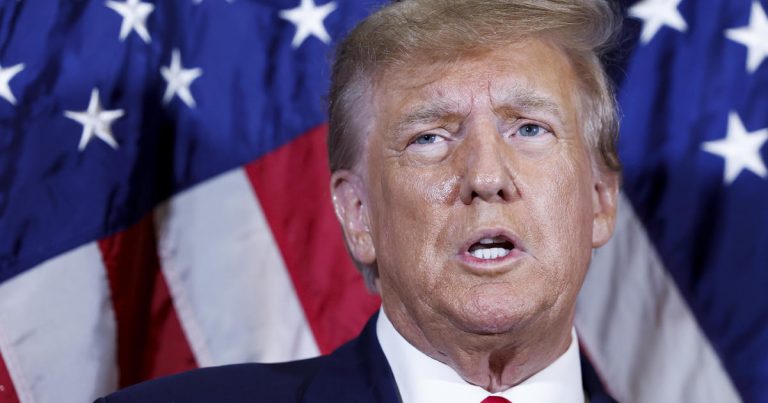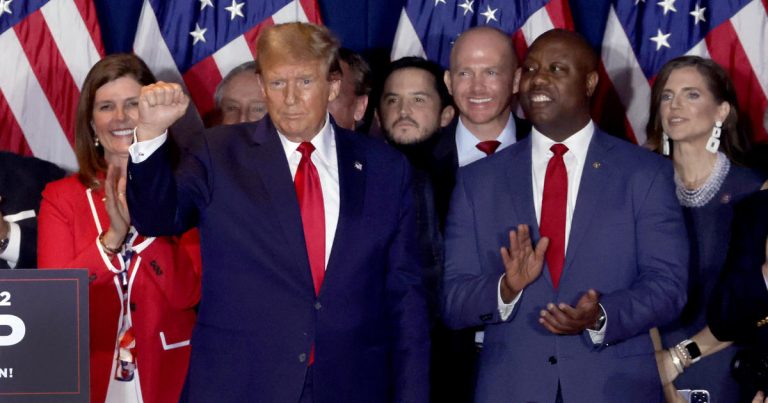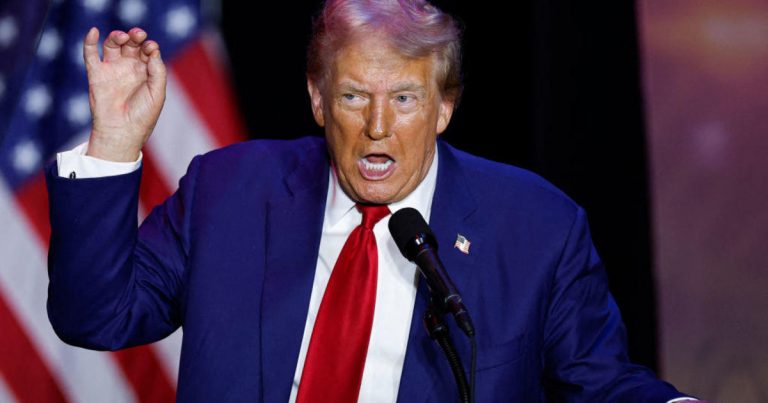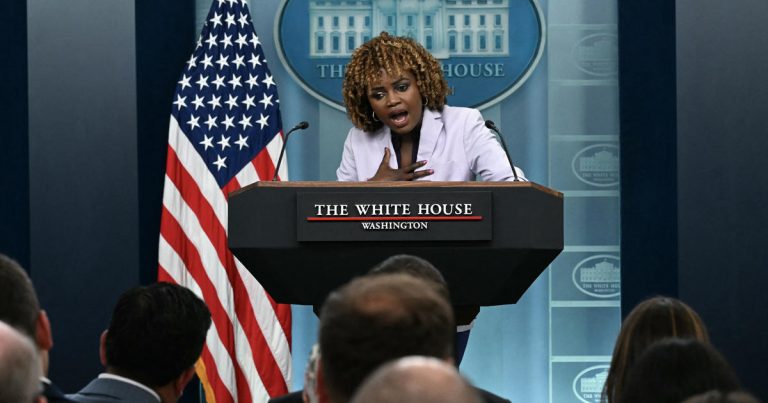Biden campaign tries to win over moderate Republicans for 2024 election
President Biden’s campaign is increasing efforts to target supporters of former United Nations Ambassador Nikki Haley and moderate Republicans across the country. In a recent development, the Biden-Harris campaign announced the appointment of Austin Weatherford, who previously served as the chief of staff to former Rep. Adam Kinzinger, as the “national Republican engagement director.” Weatherford’s role will focus on reaching out to independents and moderate Republicans who recognize the threat posed by Donald Trump if he were to be reelected for a second term.
The campaign’s strategy includes targeting moderate Republicans, particularly those who had backed Haley’s GOP presidential bid. Despite dropping out of the primary race earlier this year, Haley continues to maintain a sizable following among primary voters in key battleground states. For instance, in Pennsylvania, Haley received 16% of the vote in the GOP primary, amounting to over 158,000 votes. This figure exceeds the 2020 margin by which Biden won the commonwealth over former President Trump.
Last week, Biden campaign aides held a virtual meeting with two dozen former GOP members of Congress as part of their outreach efforts. News of this meeting, along with Weatherford’s hiring, was initially reported by CNN. Additionally, the Haley Voters Working Group, comprising Haley supporters who are either in favor of Biden or undecided, is expanding its team in battleground states. The group has been actively engaging with the Biden campaign and arranged a virtual meeting following Haley’s announcement of her support for Trump in May.
The group’s new director, Craig Snyder, a seasoned political consultant with 30 years of experience, will lead the efforts. The organization has also brought on Emily Mathews, another Kinzinger aide, to join its leadership team. Kinzinger himself had previously expressed his support for Biden in the event of Trump securing the GOP nomination.
Robert Schwartz, the president of the Haley Voters Working Group, highlighted the coalition’s alignment with Biden’s recent policy initiatives, including executive orders on immigration and support for Ukraine. Schwartz emphasized the group’s belief that Biden’s actions demonstrate his commitment to governing for all Americans, as opposed to appeasing the far left within the Democratic Party.
Despite policy differences between Biden and Haley supporters, such as on issues related to Israel, the group aims to attract over one million Haley voters in swing states to support Biden. The campaign’s engagement with these voters began early on when Biden expressed his openness to incorporating Haley supporters into his campaign post her primary exit. Furthermore, the campaign has run ads featuring Trump criticizing Haley, with future plans to address concerns among these voters about potential threats to democracy under a second Trump term.
As the election approaches, the Biden campaign intends to establish a targeted outreach program designed specifically for Republicans. The campaign aims to facilitate authentic conversations with voters on the ground, led by Republicans who already endorse Biden. However, some voices within the Republican Party expressed skepticism regarding the effectiveness of Biden’s efforts to attract disenchanted GOP voters.
The Biden campaign revealed that while they are engaging with potential Republican endorsers, they will hold off on announcing them until closer to the November elections. By following a timeline similar to 2020, when notable GOP endorsements were unveiled post the Democratic National Convention, the campaign aims to maximize impact when a larger segment of voters is tuned in.
In response to Haley’s announcement of her intention to vote for Trump, she urged the GOP nominee to earn the support of those within and beyond the party who did not back him. Trump, after a contentious primary against Haley, expressed a changing stance towards her, stating that he believes she will eventually join his team in some capacity. However, in a recent interview, Trump voiced disappointment with Haley for extending her stay in the primary race and signaled uncertainty about her potential role in his administration.
The evolving dynamics between Trump, Haley, and Biden underscore the intricate effort to appeal to diverse segments of voters in the lead-up to the 2024 elections. From targeted outreach to policy alignment, the strategies employed by the Biden campaign shed light on the broad spectrum of voters the candidates are vying to attract in the electoral landscape.








